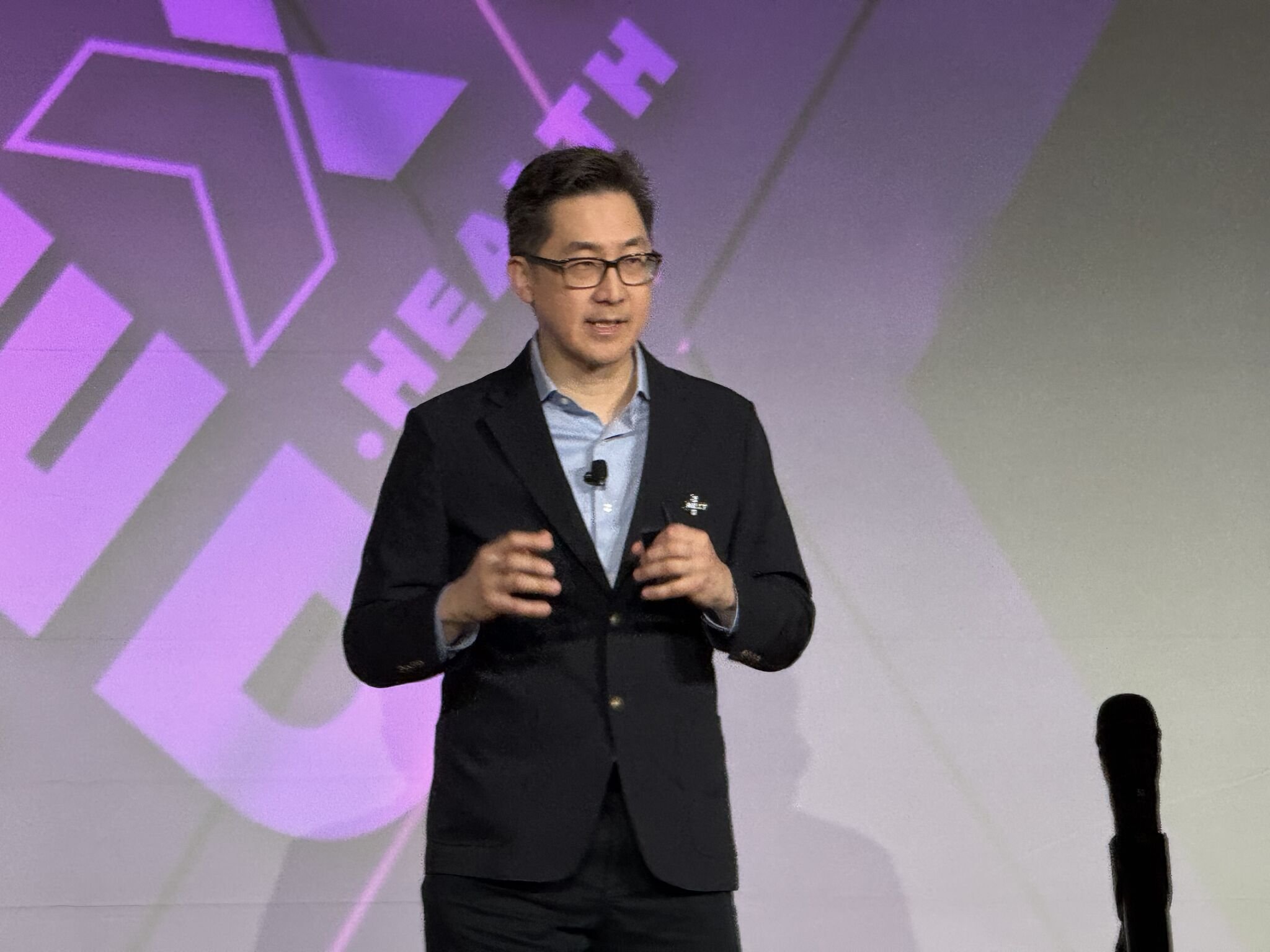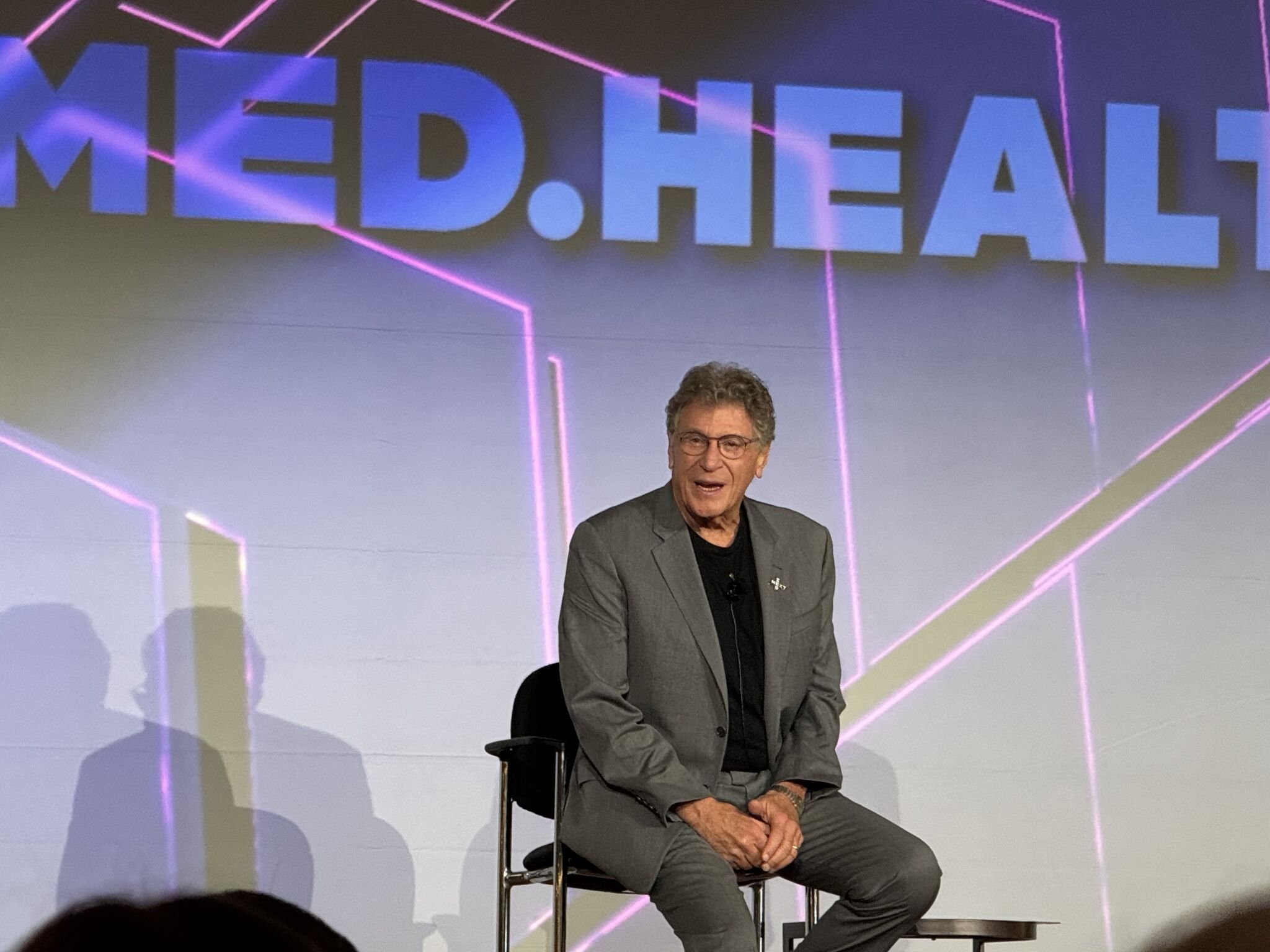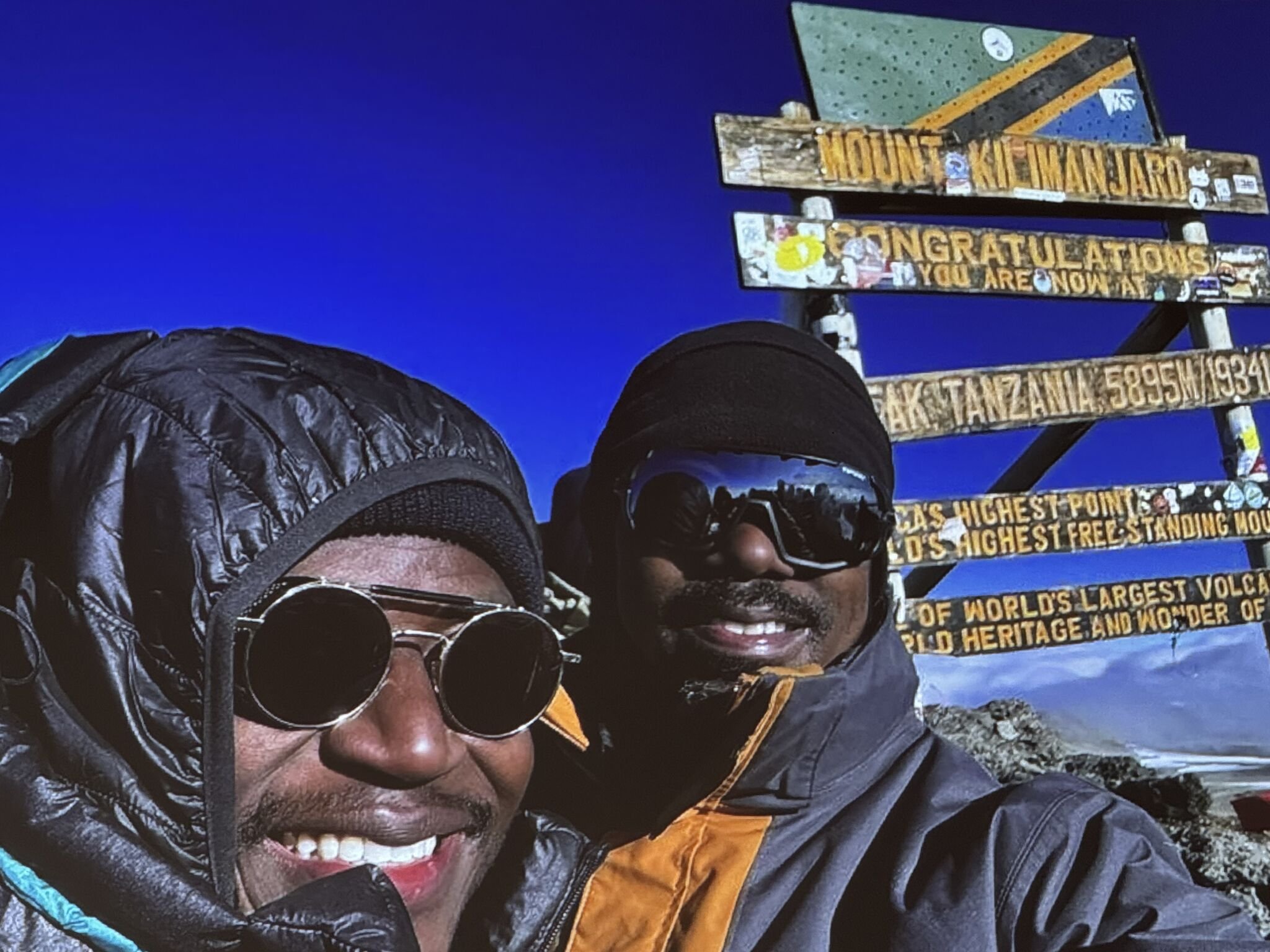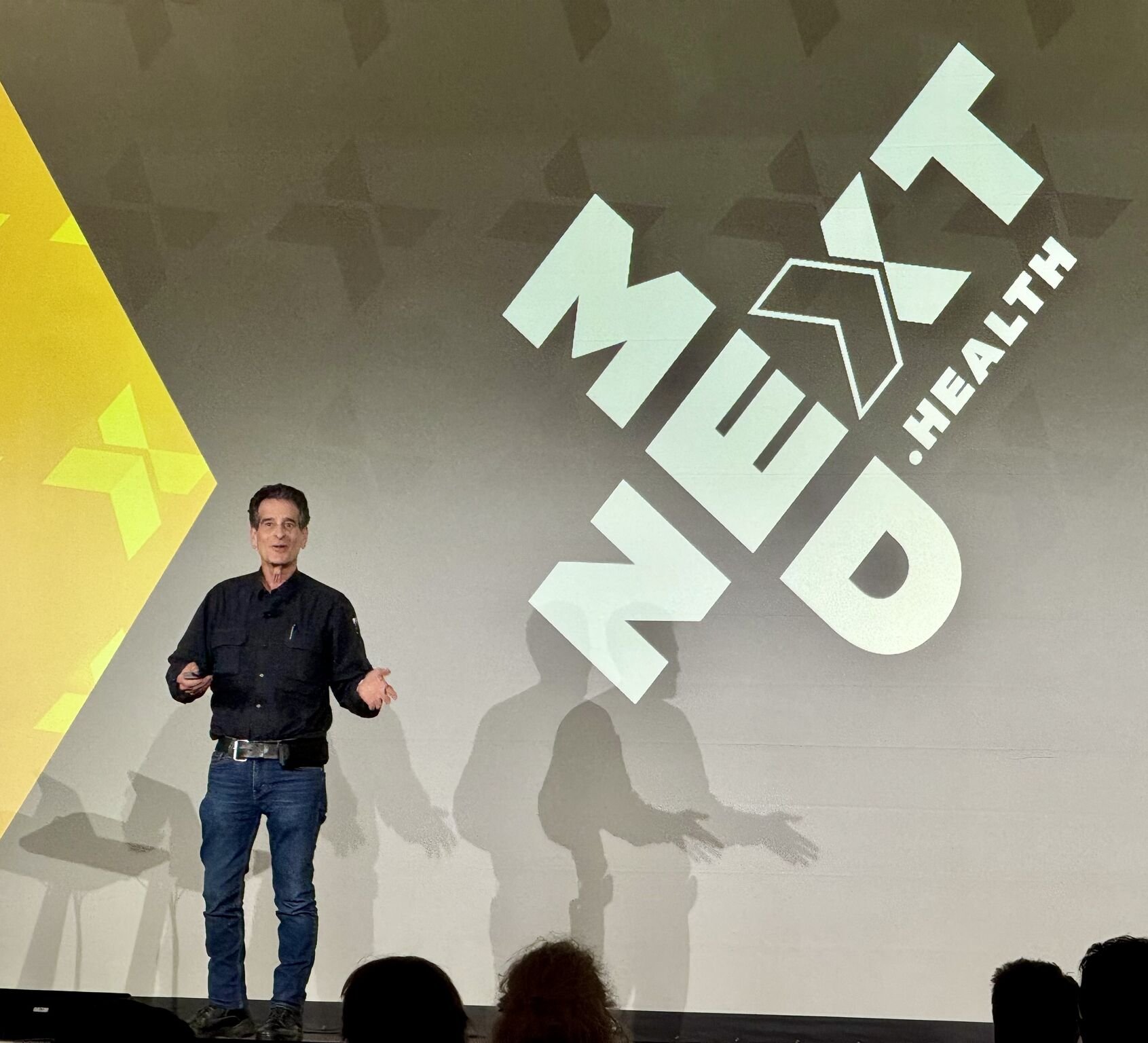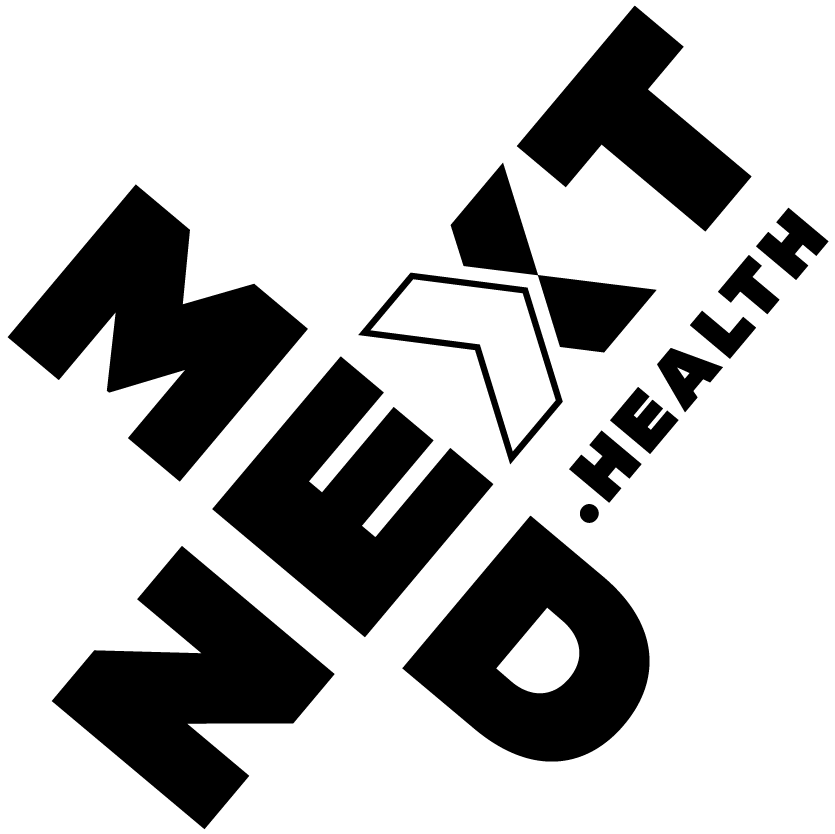Highlights from NextMed Health 2025 by John Dayton, MD, MBA
Day #1 Highlights from NextMed Health
🏆 Larry Brilliant shared his story of tracking down and treating the last cases of smallpox while working with the World Health Organization in Bangladesh. His message about doing good (and also hard) things was inspiring and he was given an award by Daniel Kraft, MD and Shawna Butler, RN MBA.
🪐 Eliah Aronoff- Spencer and Danica Vallone discussed how preparing for healthcare in space is based on designing care for remote and austere environments.
🥼 Darshak Sanghavi discussed how to make US healthcare better - think big(ger) and prioritize (pay for) what you want.
📕 Caitlin Krause ➡️ NextMed focused on digital wellbeing and a design framework to achieve this that includes several E's: experience, emotion, engagement, entertainment, exercise, embodiment, and expression.
🧑🔬 The best part is always connecting with friends like Graham Walker, MD, Harvey Castro, MD, MBA., Sandeep Pulim M.D., and meeting other interesting physicians and builders.NextMed Health always features great talks about innovators and funders, and also includes the MEDy pitch competition.
Day 2 of NextMed Health 2005 was packed with interesting speakers and ideas. Here are my highlights:
🖥️ David Rhew, M.D. talked about how increased AI use will need to be paired with operational resources, AI-skilling/reskilling, and responsible use. Microsoft for Healthcare will be launching a resource to scan retinas to screen for diabetes, CV, neuro, and eye health with a new streamlined process and collaborative work.
💲 Ricky Mehra discussed how his venture investment thesis focuses on multimodal AI tools that combine text, imaging, and voice and talked with David about physician AI upskilling.
🧑🔬 Dean Kamen talked about his work at DEKA Research & Development building home dialysis, painless med delivery, and mobility resources.
🥼 Lee Sanders emphasized how transitioning from a physician to a patient highlighted the need to address health disparity with a focus on increasing access to all populations with efficacious technology
🧬 Hans Keirstead talked about the Human Immunome Project and the potential to use 1.9 trillion data points to improve health both equity and health longevity.
🩸 Patrick Hines discussed the potential for curing sickle cell with tech from CRISPR Therapeutics and how one of his sickle cell patients was able to scale Mt. Kilimanjaro without a pain crisis.
🧫 Jennifer MacDonald, MD shared how Advanced Regenerative Medicine Institute is able to manufacture cells and tissues at scale to help 6 out of 10 Americans with chronic disease.
🧓 Ken Dychtwald emphasized the importance of having our lifespan match our healthspan through AI-guided wellness and self-care (like Waze for health), scientific breakthroughs, and longevity excellence (starting with med school).
👩🦱 Jennifer Garrison talked about aging for women - and improving the longer lifespan through a focus on ovarian health.
🏆 Jamie Justice, Ph.D. discussed the $110M XPRIZE focused on women's health (the XX prize).
👨🦳 Lucien Engelen highlighted improved longevity care through a sense of urgency, AI resources, and early detection.
🌍 Dr Yomi Jaye discussed democratizing and demonetizing care in low-resource areas. "The problem is not the lack of resources - the problem is the lack of resourcefulness."
💡 As always, the MEDY pitch event featured interesting companies, including those that highlighted portable ultrasound (Bloom Standard), empathy bots (Attune Media Labs, PBC), a behind-the-ear device that controls a computer mouse without using your hands (Naqi Logix Inc.), a data and step analysis shoe insole (Sensoria Health Inc.), and a home-based body scanner focused on fitness (Shape (ShapeScale).
Highlights from Day 3 of NextMed Health 2025
🫀 Eric Topol, MD talked about his new book, "Super Agers" which is an evidence-based approach to aging, focusing on sensor-based predictive analytics, patient empowerment, and the importance of the immune system. During a Q&A, he noted he is a fan of using Substack and letters to the editor to highlight the value of The National Institutes of Health. He was critical of supplements and sham longevity businesses.
🏠 Jared Conley, MD, PhD, MPH highlighted how there would be a tricky transition to adopting the 'hospital at home' care model, but he also noted that early data showed this care is unique in meeting all 5 measures of the quintuple aim - including lowering costs.
VR highlights:
🍃 Walter Greenleaf, PhD talked about how immersive medical systems (VR/AR) will be used to personalize behavioral health and manage other complex health issues.
💪 Leanne Pedante talked about using VR for identity transformation and building community through health programs like Meta's Supernatural.
Surgical Innovation:
🥼 Ryan Kerstein talked about Surgery 3.0 which involves advanced ergonomics, AI-informed operative planning through patient imaging, preparation and practice, and devices.
🏥 Josh Burke talked about leading a group of physicians in England focused on improving surgical care by focusing on using tech for training, increasing exposure to operations, and innovation to help the surgical workforce
🎮 Sam Glassenberg talked about gamification for surgical preparation, which involves realistic graphics, haptics, and the ability to document improvement
Digital Health:
⌚ James Mault, MD, FACS discussed using sensors for collecting real-time physiologic data and predictive analytics with BioIntelliSense, Inc because "streaming data leads to exceptional management."
🩺 Catherine Liao monitors blood pressure to unlock information about arterial health with Cardiex and shared her device with the audience.
💉 Yan Fossat and his team at Klick are using voice analysis to identify patients who have diabetes, allowing them to democratize screening and institute care.
Neurology:
😴 Meredith Perry is focused on improving sleep through electric medicine and using timed waves with the Elemind Technologies, Inc. device.
👁️ Dr. Sheila Nirenberg was able to restore vision in retinitis pigmentosa by injecting the eyes with optogenetic proteins which depolarized ion channels. Max Hodak was also able to restore sight in RP patients through neuro implants.
🧠Meron Gribetz built the smallest brain-computer interface to address depression. This involves implanting an electrode just outside the skill for transcranial magnetic stimulation.
💲 Investment highlights:
🖥️ Amir Dan Rubin talked about the future of healthcare. His venture firm is interested in innovative solutions that leverage technology to meet demands for physicians and supply for patients. He did a deep dive into the physician utilization of AI, noting that ambient scribe tools are showing promise for decreasing burnout, lessening the cognitive load, and improving the quality of patient notes. The jury is still out on whether it improves physician experience, saves time, or decreases charting at home. As an emergency physician, I used OpenEvidence for clinical decision support and personalized patient education.
🏥 Christopher Longhurst discussed how UCSD Med is using AI to increase care quality and computer vision to increase patient safety, prevent falls, and decrease pressure ulcers. He noted that AI resources should focus on outcomes and results.
🩺 John Mattison noted that "hardware is easier than software, and software is easier than scaling." He also discussed the success of blue zones and aging due to healthy lifestyles and communities.
⚕️ Paul Grand highlighted MedTech Innovator, noting that they lead all accelerators in the number of both healthcare and device companies. They have 717 alumni companies, 93% of companies are in business or have been acquired, and have 370 FDA authorizations. Their companies have received $9.5B in follow-on funding and 53 exits.
🏆 This year's MEDy awards winners include:
💡 Most Disruptive: Annamarie Saarinen from Bloom Standard, ultrasound 🌱 NextGen: Cathy Skinner from NXgenPort, cancer care and med device
⚖️ Most Likely to Scale: Akbar Yermekov from PAfoS.AI, AI for complex data
⬆️ SuperConvergence: Alexandre Wayenberg from Shape (ShapeScale)
👀 One to Watch: Simon Blazy from Lifelight Health GmbH, cancer delivery
🎁 Best Presentation: Ryan Shelton from PhotoniCare, Inc., ear infection device
